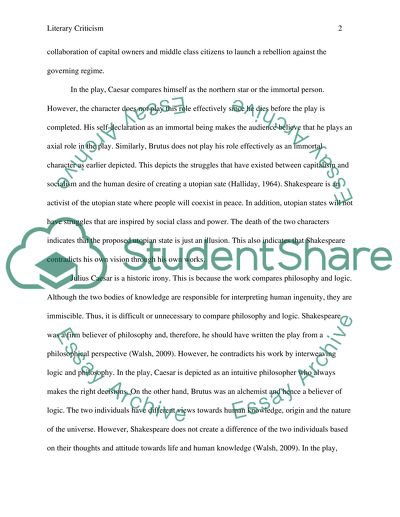Cite this document
(“Marxist Literary Criticism of Julius Caesar by William Shakespeare Essay”, n.d.)
Retrieved from https://studentshare.org/literature/1453583-marxist-literary-criticism-of-julius-caesar-by
Retrieved from https://studentshare.org/literature/1453583-marxist-literary-criticism-of-julius-caesar-by
(Marxist Literary Criticism of Julius Caesar by William Shakespeare Essay)
https://studentshare.org/literature/1453583-marxist-literary-criticism-of-julius-caesar-by.
https://studentshare.org/literature/1453583-marxist-literary-criticism-of-julius-caesar-by.
“Marxist Literary Criticism of Julius Caesar by William Shakespeare Essay”, n.d. https://studentshare.org/literature/1453583-marxist-literary-criticism-of-julius-caesar-by.


